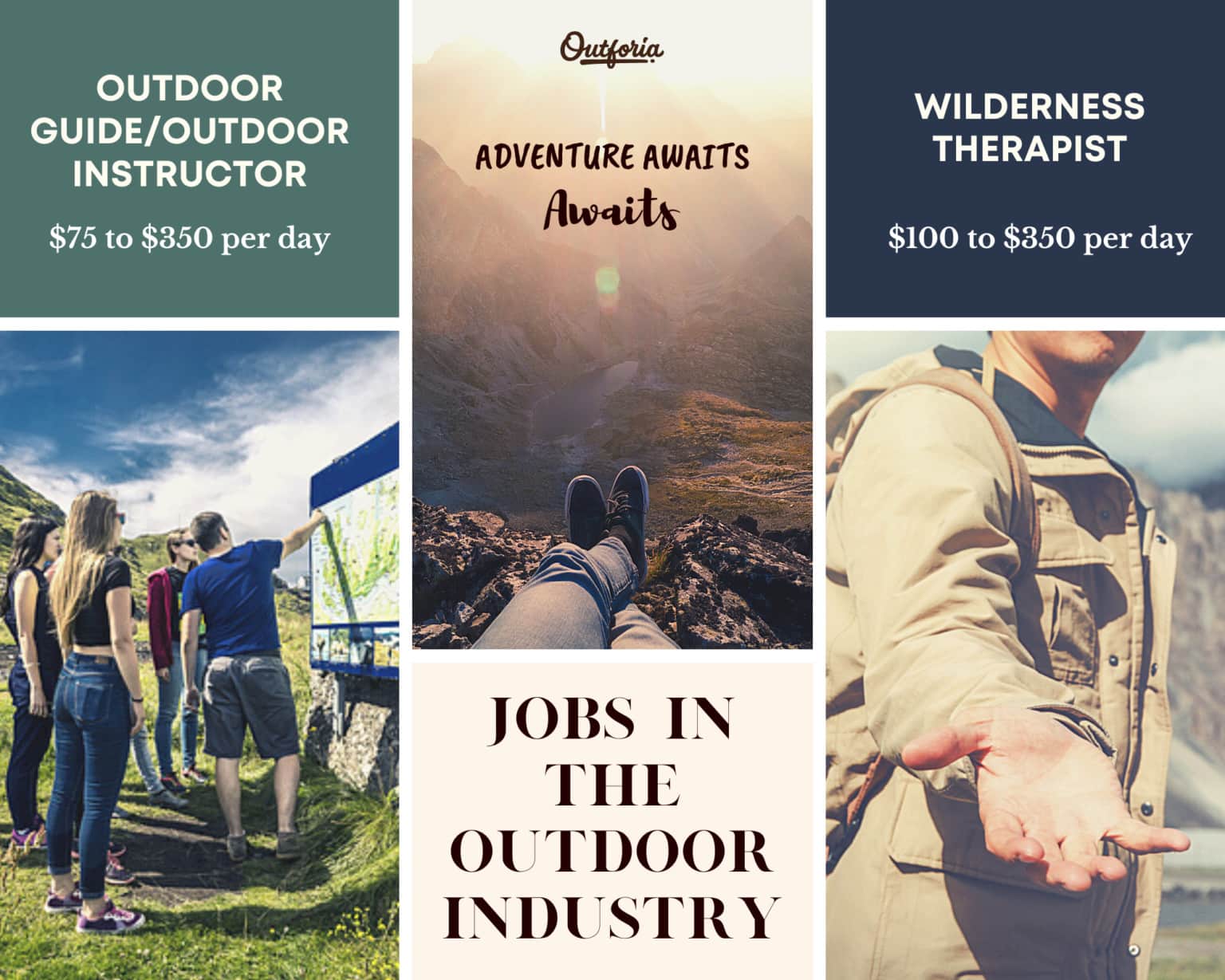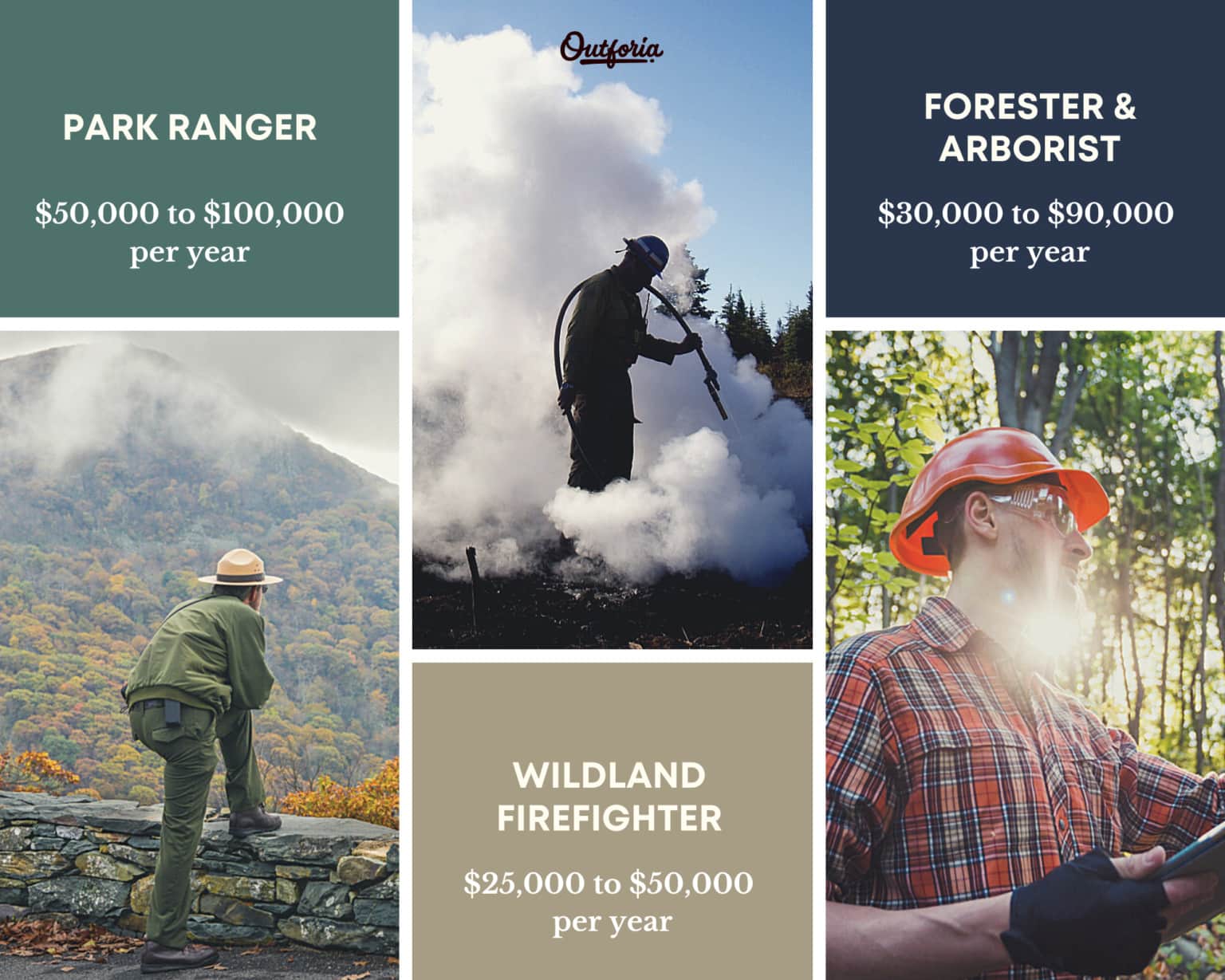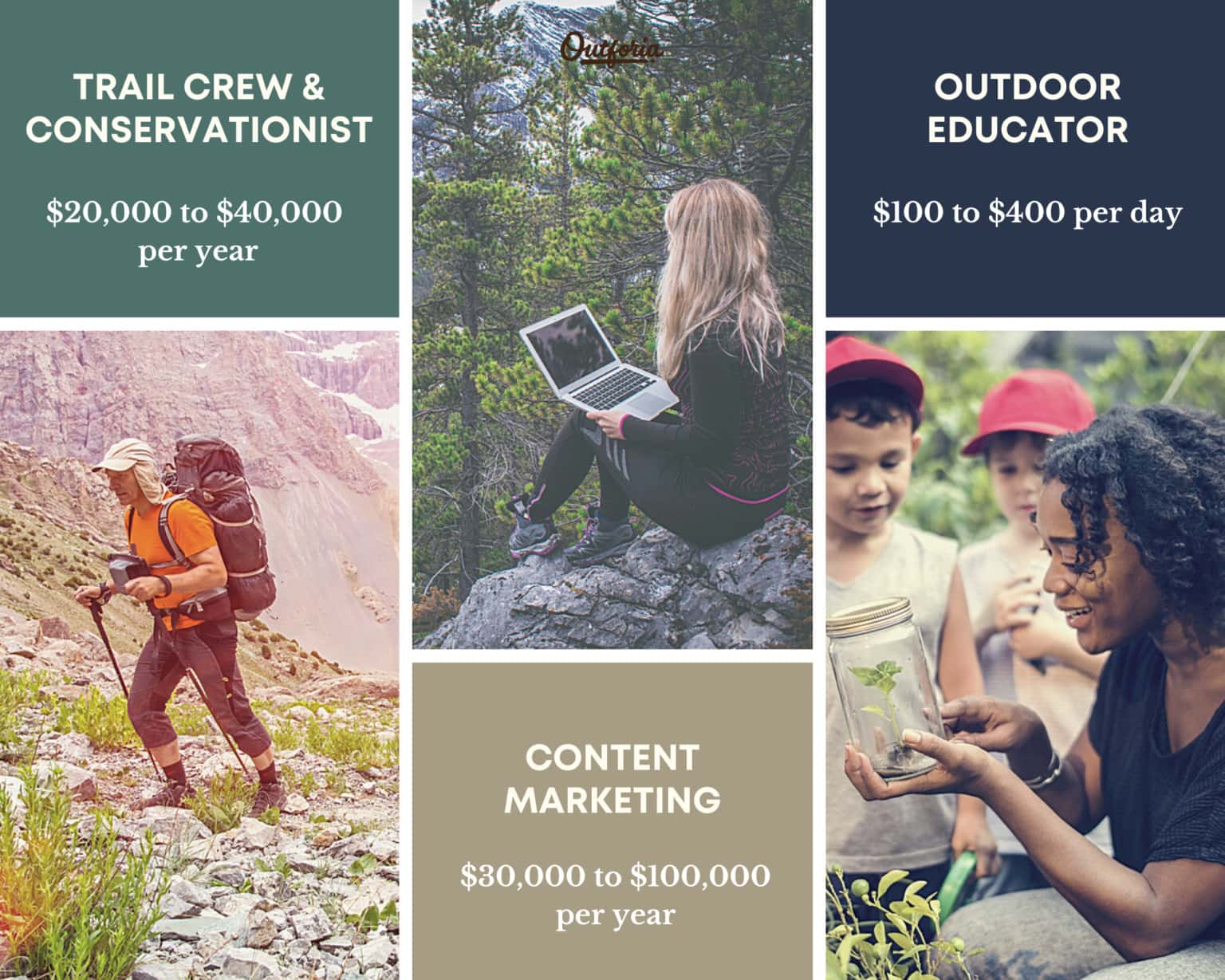Let’s be real: There are few better office views than the great outdoors.
In fact, if you’re an avid hiker, climber, biker, skier, or paddler, at some point, you’ve probably wondered how you could possibly land a job in the outdoor industry. Thankfully, getting a job that allows you to ditch the office life in exchange for time spent in the mountains is possible – if you know where to start.
Whether you’ve been on the lookout for an outdoor job for a while or you’ve just started exploring your possibilities, we’re here to help you snag your next job in the mountains.
After years of working in the outdoors as a guide, educator, instructor, program manager, and writer, I know exactly what it takes to make a career outside. Up next, I’ll walk you through the ins and outs of getting a job in the outdoor industry so you can make a living by doing what you love.
Top Outdoor Industry Careers
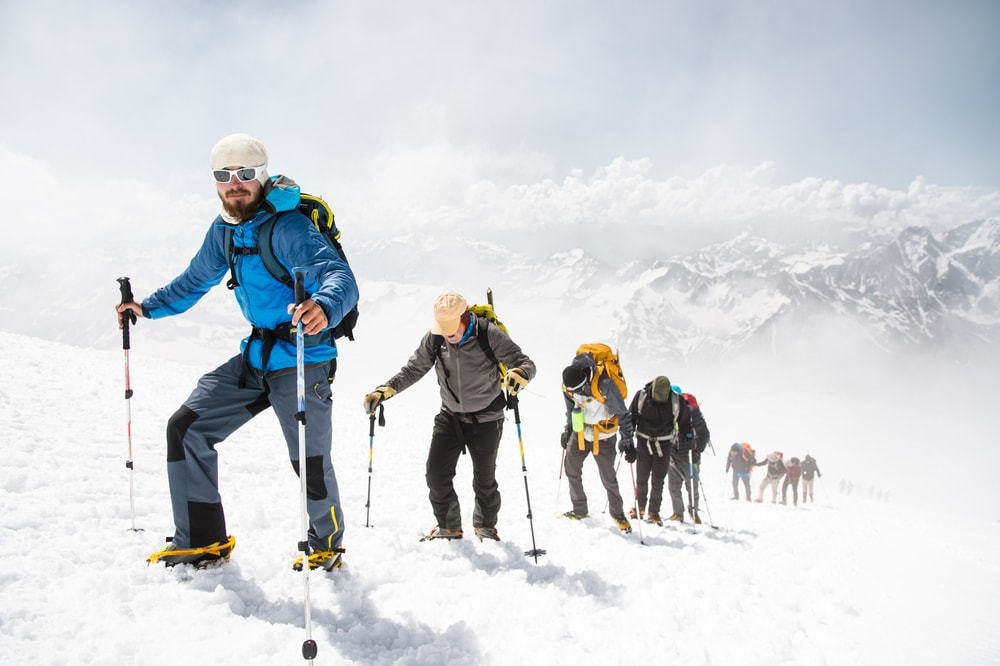
Okay, first things first: What jobs can you even get in the outdoor industry? While many of us think of outdoor jobs as guiding gigs, there are actually many, many careers that you can have in the outdoors.
In fact, figuring out precisely what you want to do outside is imperative if you want to land your dream job. While it’s impossible to list every single possible outdoor job here, let’s quickly go through some of the major job titles and categories to give you a sense of what types of jobs might work best for you.
Outdoor Guide/Outdoor Instructor
Perhaps the first job that folks think of when they imagine a life spent working outside, outdoor guides and outdoor instructors are people who lead guided adventure trips.
Depending on where you work and your personal skill set, guiding could involve leading day-long rock climbing trips, weekend ski adventures, afternoon whitewater paddling excursions, or month-long winter camping trips – the opportunities are truly endless.
Outdoor Educator
Similar to outdoor guiding, but with more of an educational twist, outdoor educators usually work for non-profit organizations that have an emphasis on teaching.
While many outdoor educators work in backcountry environments or on multi-day camping trips, many others work in outdoor centers or in schools. Ultimately, the goal is to teach people new skills (e.g., outdoor skills, interpersonal skills, leadership skills) while outside.
Wilderness Therapist
A relatively new addition to the outdoor industry, wilderness therapists are folks who seek to provide a therapeutic experience for clients in the outdoors through amongst other things, nature exposure therapy. There are a number of wilderness therapy organizations around the world, though most provide immersive residential or backcountry outdoor experiences.
While being a qualified therapist, counselor, or social worker is often a requirement for working in wilderness therapy, there are many organizations that hire non-clinical professionals. In these situations, you’ll likely end up working as an educator alongside a team of clinical professionals in a therapeutic setting.
Park Ranger
If patrolling backcountry areas, working as a naturalist, and interacting with visitors seems like your cup of tea, then being a ranger at a national, state, or local park or forest might be a good idea.
Generally speaking, rangers are government employees, so the application process might be a bit more involved than what you’d find in other outdoor jobs. But, all things considered, park rangers get to work in some of the most beautiful places in the world, all while introducing others to the great outdoors.
Wildland Firefighter
Perhaps the riskiest of the outdoor jobs that we’ll discuss here, being a wildland firefighter is not for the faint of heart. Like park rangers, wildland firefighters are often government employees, either at the state or national level.
So, you’ll likely be hired by the National Park Service, the US Forest Service, the Bureau of Land Management, or another similar agency. To become a firefighter, you’ll need to pass a physical fitness test and meet certain educational requirements depending on the agency you want to work for.
Forester & Arborist
Although they’re technically different professions, foresters and arborists both work with trees and woodlands. While both foresters and arborists try to manage woodlands to help them thrive, foresters look at the health of the entire forest ecosystem, while most arborists work on a much smaller scale.
Both professions require a significant amount of education and training, though there are jobs for both careers in the private and public sectors. If trees and ecosystems are your jam, them being a forester or arborist is a solid choice.
Trail Crew & Conservationist
The beautiful trails and backcountry campsites that we all know and love don’t magically appear on their own. In fact, these backcountry amenities are the result of hundreds of hours of hard work by trail crews and conservationists around the world.
If you love to work with your hands and spend time outside, working on a trail crew is a solid choice. Although most entry-level jobs are volunteer through AmeriCorps, the Student Conservation Association, or the American Conservation Experience program, there are many professional trail crews out there that are hired by nonprofits and government agencies.
Logistics Coordinator
Pretty much every major outdoor company or organization needs a logistics coordinator. As the name suggests, being a logistics coordinator involves managing the logistics of running an outdoor business or non-profit, which can include arranging transportation, acquiring permits, organizing staffing, and other logistics-oriented tasks.
Being a logistics coordinator usually involves some level of knowledge of the outdoor industry and the company that you work for. Nevertheless, any logistical and organizational skills you might have from a different industry can be quite helpful when it comes to landing a gig as a outdoor industry logistics coordinator.
Content & Marketing
While “content and marketing” isn’t necessarily a job title, there are dozens of different outdoor industry jobs out there that involve content creation, management, and marketing. Whether that’s working as an outdoor writer or photographer or as a copy editor and social media coordinator for an outdoor organization, there are plenty of jobs to choose from.
In these jobs, a solid understanding of the outdoor industry is imperative, as are quality communication skills. You can often find these jobs at outdoor publications (websites, magazines, podcasts, etc.) or with outdoor gear manufacturers.
Retail & Sales
Retail and sales jobs are the backbone of the broader outdoor industry, which includes everything from major gear manufacturers to mom and pop gear stores. Retail and sales gigs can be a great way to build up your knowledge of the outdoor industry and to meet other like-minded folks (to say nothing of the fantastic gear discounts).
Plus, working in sales is a time-honored profession, and it’s a great job for anyone that likes to nerd out on gear. In addition to working in a retail store, many brands hire sales reps who get to travel and visit trade shows to promote new products.
Design & Engineering
All the amazing outdoor gear that we use doesn’t just appear out of nowhere. In fact, every single piece of hiking gear that you take outside is the result of countless hours of engineering, research, and design.
Although these jobs generally require quite a lot of education and training, being a product designer or engineer in the outdoor industry is a fun, rewarding, and well-paying gig.
How Much Do Outdoor Jobs Pay?
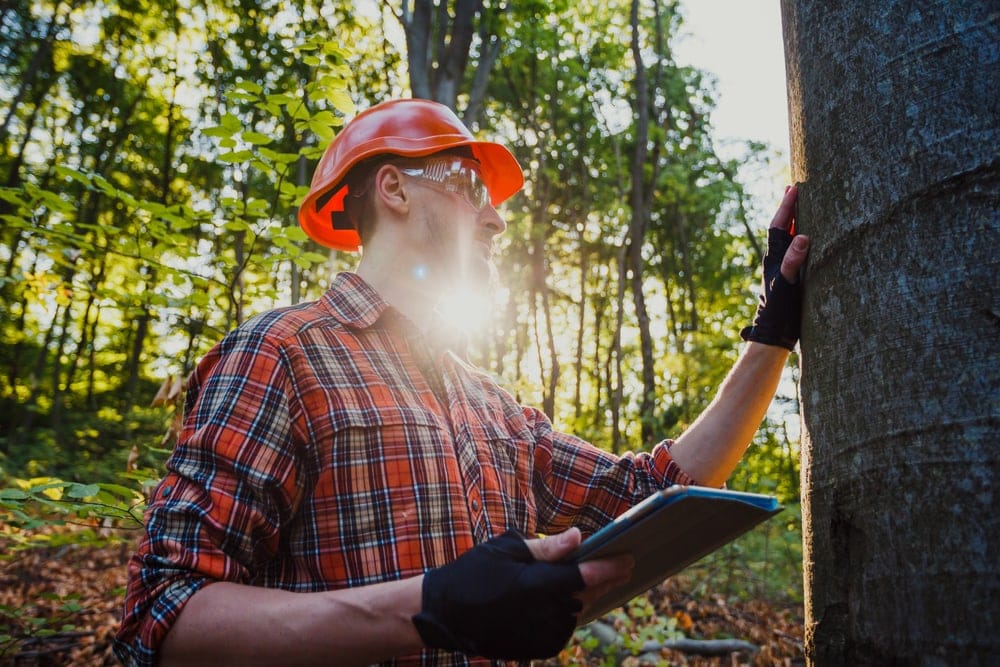
If you’re looking for a full-time job in the outdoor industry, chances are pretty high that you want to get paid for your work. While salaries vary greatly from position to position, here’s a very broad estimate of what you can expect to get paid in different aspects of the outdoor industry:
- Outdoor Educator: $75 to $350 per day
- Outdoor Guide/Outdoor Instructor: $100 to $400 per day
- Wilderness Therapist: $100 to $350 per day
- Park Ranger. $50,000 to $100,000 per year
- Wildland Firefighter. $25,000 to $50,000 per year
- Forester/Arborist. $30,000 to $90,000 per year.
- Trail Crew & Conservationist. $20,000 to $40,000 per year.
- Logistics Coordinator. $30,000 to $80,000 per year.
- Content & Marketing. $30,000 to $100,000 per year.
- Retail & Sales. $20,000 to $80,000 per year.
- Design & Engineering. $50,000 to $150,000 per year.
As you can see, pay in the outdoor industry varies a lot from job to job and even within a single position. For the most part, you can expect to get paid more as you gain more experience and certifications within a single role.
However, desk jobs, on average, pay more in the outdoor industry than positions where you spend most of your time outside.
What Certifications Do I Need To Work Outdoors?
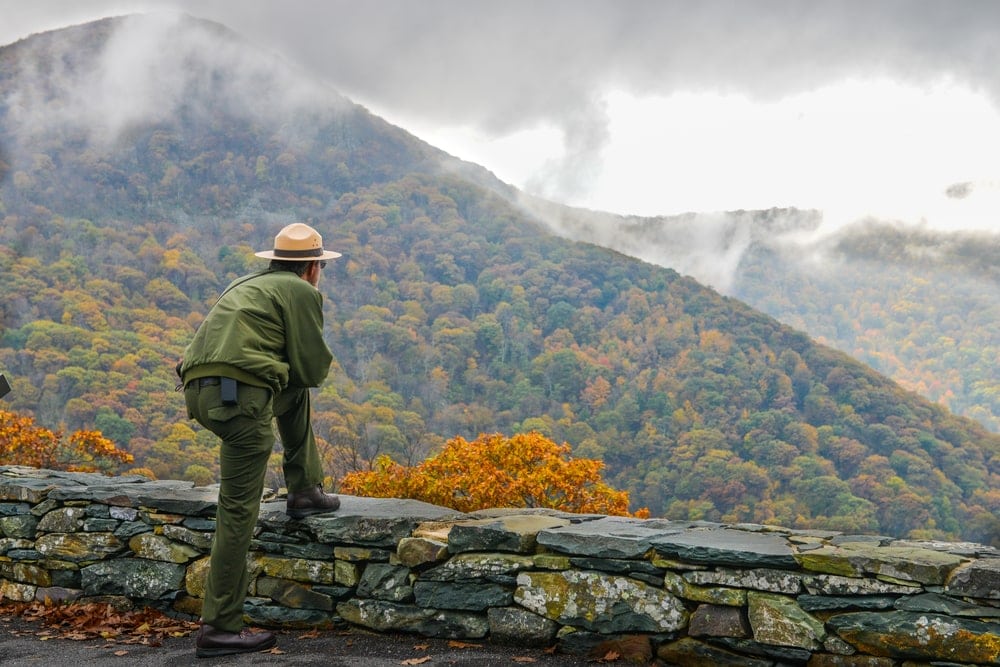
At this point, you’ve heard me talk a lot about the various certifications you might need to work in the outdoors. But, what qualifications do you actually need?
Well, it depends.
If you’re searching for jobs in the United States, there is generally no legal requirement for certification for most outdoor guiding and education jobs. In other parts of the world, such as Europe, the United Kingdom, Australia, and New Zealand, however, certifications are a must if you have any hope of landing paid employment.
Nevertheless, many outdoor jobs (especially those in guiding, instruction, or education) will require some level of certification, so getting qualified is essential.
At a minimum, you’ll almost certainly need to have either a wilderness first aid (WFA) or wilderness first responder (WFR) certification if you want to work outside in the United States. You can take these courses with a number of providers, though SOLO, NOLS, and WMA are the most popular.
Other than that, the certifications you might want to consider will depend on what types of activities you like to do outside. Although there are too many certifications to list in this article, here’s a list of some of the major certification providers for you to check out:
- Climbing/Mountaineering: American Mountain Guides Association, Association of Canadian Mountain Guides
- Avalanche Rescue: American Avalanche Association, American Institute for Avalanche Research and Education, Canadian Avalanche Association
- Paddlesports: American Canoe Association, British Canoeing
- Sailing: American Sailing Association, Royal Yachting Association
- Skiing: Professional Ski Instructors of America
- Outdoor Ethics: Leave No Trace
If you’re interested in more formal education, you might also consider completing a bachelor’s degree or master’s degree in outdoor education or recreation. Although this is by no means a requirement to land an outdoor job, a degree is helpful if you’re interested in going into research or working in an educational environment.
Paying For Your Certifications
As a final note on outdoor certifications, I do want to point out that these classes and exams are not cheap. If you’re working on a tight budget, I highly recommend reaching out to the certifying organizations or course providers to see if they offer scholarships or discounts.
For folks who identify as BIPOC, LGBTQ+, or as a member of another traditionally marginalized group, there are many organizations out there that offer scholarships to help you take courses and get certified, too.
Where to Find Outdoor Industry Jobs

Once you have a good idea of what you’d like to do in the outdoor industry, it’s time to start searching for your first job. While you can certainly keep an eye out on LinkedIn, Indeed, Monster, and other similar job search engine sites, outdoor industry job postings are known to crop up in unexpected places.
So, if you’re looking to land a gig in the great outdoors, check out these websites:
- Backdoor Jobs
- OutdoorEd.com
- Association for Experiential Education (AEE) Jobs Clearinghouse
- CoolWorks
- NOLS Jobsnetwork (must be a NOLS alumni)
- OutdoorIndustryJobs.com
- Wander Jobs
- Adventure Job Board
- Good Natured Jobs
- Camber Outdoors
- SNEWS Outdoor Job Board
- Malakye
- USAJobs.gov (for US government jobs)
- OutdoorOccupations.com
- Occupation Wild
In addition to websites, there are also quite a few Facebook and social media pages where you can find job postings on a regular basis. Some of the most popular groups include:
Tips For Landing Your First Job In the Outdoor Industry
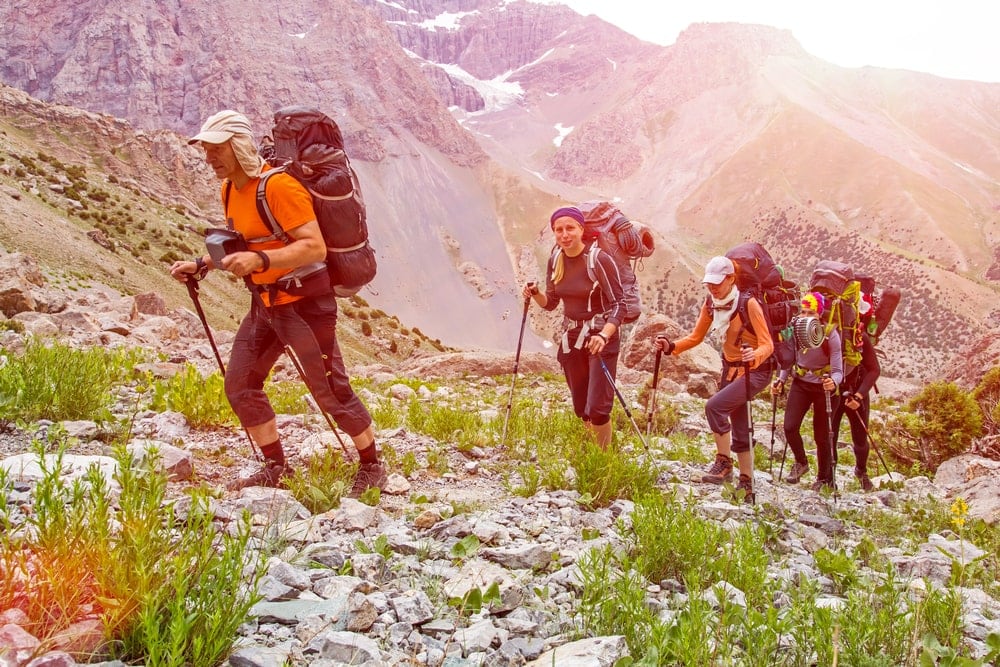
Snagging your first outdoor job can seem like a daunting task. Here are some top tips to help you land your dream gig:
1. Get Qualified To Do The Job
Being passionate about the outdoors is a prerequisite for any outdoor industry job, but it’s not the only requirement. Although you can probably get an entry-level gig with just a long list of personal outdoor accomplishments, if you want to move up in the pay ladder and gain more responsibility, getting qualified to do your dream job is essential.
Of course, certifications and badges don’t replace the fact that you need to be skilled at what you do. Rather, getting certified to do your job – particularly if you want to be a guide or instructor – helps bolster your application in the eyes of hiring managers. It says, “Hire me! I take my career seriously and have invested the time into becoming an outdoor professional.”
2. Appreciate The Power of Retail
If you’re just starting your professional life or you’re looking to make a career shift, working in retail is a great way to get your foot in the door in the outdoor industry. Even if working in sales isn’t your ideal dream job, getting familiar with outdoor gear (and getting some great gear discounts along the way) can be a nice side-gig as you build up your outdoor resume.
Plus, you’ll probably work alongside some awesome like-minded folks, which means you’ll never have a shortage of adventure partners again!
3. Don’t Settle For Low Paying Gigs
As someone who has worked many different roles in the outdoor industry, I have to be honest: If you’re expecting to make a 6 figure salary as a climbing guide, you’ll be sorely disappointed.
Unfortunately, with the exception of executive positions in major retailers, manufacturers, government agencies, or media outlets, big paychecks are not the norm in the outdoor industry.
However, this does not mean that you need to settle for a job that pays peanuts just because you want to work outside. In fact, many camps, guiding services, outdoor education organizations, and the like have long taken advantage of the fact that people will accept jobs that pay less than minimum wage just because it means they can spend time outside.
Although it might seem tempting to take a paycut in exchange for a cool job, remember that doing so only drives down salaries for the whole industry, which includes any future jobs you might have. If you’ve invested time, money, and energy into becoming an outdoor professional, you deserve to be compensated appropriately, so don’t settle for anything less.
4. Make A Professional Resume & Cover Letter
In a past life, I worked as a manager for an outdoor education program, so one of my primary tasks was to hire instructors to work for our organization. If there’s one thing that I took away from that experience it was that hiring managers are not inclined to hire folks who send in an unprofessional resume.
Of course, I’m not saying that you need to pay someone to create a stunning resume, nor that having a beautiful resume is always going to land you the job. Rather, sending a resume that’s filled with spelling errors and formatting issues isn’t going to make you stand out among the crowd.
If you’re applying for a job, take the time to write, edit, and format your resume so it clearly details your education, work experience, certifications, and other relevant skills.
Should you not have any prior outdoor industry experience, use your cover letter to convince the hiring manager why they should hire you. You probably have lots of relevant experience from your other jobs, internships, and personal outdoor trips, so make it known. Your goal is to stand out enough so you get an interview, which is where you can really make a good impression.
5. Have Quality References
Finally, as a former hiring manager, I can honestly say that having quality references makes a difference – especially if you want to work as an outdoor guide, instructor, therapist, or educator.
While anyone can get certifications and make a fancy resume, having people who can serve as a reference to who you are as a person and as an employee is important.
Don’t have any relevant professional references? It’s okay to use a reference from a non-outdoor job, internship, or volunteer position. Alternatively, if you’re allowed to submit non-professional references, long-time adventure buddies that can attest to your character and reliability are also valuable resources.
FAQ
How Can I Make Money Outside?
You can make money outside by working in the outdoor industry as a guide, instructor, educator, wilderness therapist, park ranger, forester, or conservationist. Alternatively, there are plenty of other jobs, such as retail, marketing, communications, product design, and sales that involve working with outdoor professionals and outdoor markets in an office environment.
What Is An Outdoor Instructor?
An outdoor instructor is anyone who teaches outdoor skills to clients and students. Outdoor instructors can teach anything from basic survival skills to wilderness medicine. The key point, however, is that outdoor instructors teach skills that are necessary for recreating in the outdoors.
What Are The Best Outdoor Jobs?
There are hundreds of different jobs that you can get in the outdoor industry, so it’s impossible to say that one is better than the other. However, some of the more popular jobs include being an outdoor guide or instructor as these gigs involve spending most of your time outside
.



